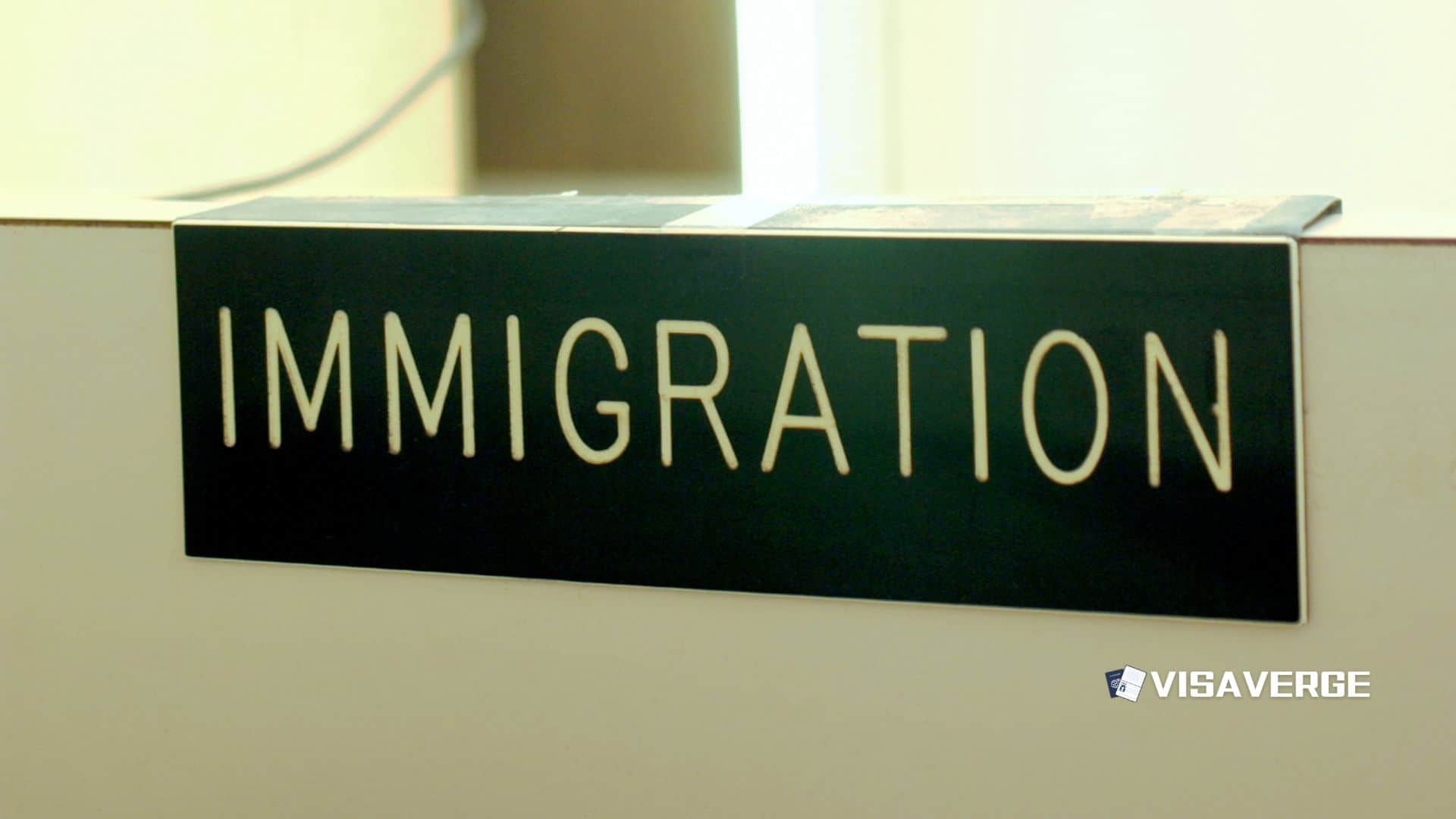(CANADA) Migrants’ rights groups across Canada 🇨🇦 are stepping up pressure on Prime Minister Mark Carney’s government to withdraw Bill C-2, known as the Strong Borders Act, warning that the proposal would put refugees and migrant workers at greater risk of deportation, surveillance, and rights abuses. More than 300 civil society organizations, including the Migrant Rights Network and the Canadian Council for Refugees, have joined forces against the bill, which they say marks a sharp turn away from Canada’s public image as a country that protects people fleeing danger.
What Bill C-2 would do (introduced June 3, 2025)

Bill C-2 was introduced on June 3, 2025 as a major border and immigration enforcement package. The bill would give immigration and law enforcement agencies broad new powers to cancel, suspend, or refuse immigration documents and applications for large groups of people at once, without individual review or hearings.
Advocates argue this “en masse” approach would remove basic legal safeguards normally applied in the Canadian immigration system, such as the right to be heard before a status decision is made. Critics warn this could lead to deportations without proper individual assessment.
Rights and legal concerns
- Opponents say the powers in Bill C-2 could result in people being deported to unsafe countries without evaluation of their personal situations.
- They argue these measures clash with the Canadian Charter of Rights and Freedoms and with international refugee law.
- For refugee claimants, who often rely on detailed evidence of risk and trauma, the removal of individualized assessment could be especially harmful.
“People could lose their right to stay with little chance to challenge the decision,” — a central legal concern raised by critics.
Privacy, data-sharing, and chilling effects
Privacy and data sharing are another major fault line in the debate. Under Bill C-2, the government would be allowed to share migrant information widely across different levels and branches of government, with far fewer limits than exist today.
- Rights advocates say unrestricted sharing would expose migrants’ personal data to many agencies and officials.
- This could create a climate of fear for undocumented workers and others with precarious status.
A concrete example raised by critics involves migrant workers who report employer abuses:
- If a worker reports unpaid wages, unsafe conditions, or harassment, that complaint could trigger information sharing between labor authorities and immigration enforcement.
- If that shared data is used for immigration checks and deportations, many workers may remain silent rather than risk removal.
The political and organizing response
The Migrant Rights Network, which coordinates campaigns for status and protections for all migrants in Canada, frames Bill C-2 as part of a wider trend toward criminalizing people on the move instead of addressing root economic and social causes of migration.
- Migrant rights groups, refugee advocates, labor unions, and community organizations are calling for:
- Withdrawal of Bill C-2; and
- Adoption of regularization programs to give more migrants secure status rather than heightened enforcement.
Bill C-12: expanding the agenda (tabled October 8, 2025)
The political landscape shifted again in October 2025 with the introduction of Bill C-12, tabled on October 8, 2025. Bill C-12 builds on and expands many measures first put forward in Bill C-2 and is presented by the government as a broader public safety package.
- Official aims: strengthen border security, fight organized crime, and improve the “integrity” of the immigration system.
- Critics: see it as locking in and extending an enforcement-first vision that sparked backlash around Bill C-2.
Bill C-12 includes provisions targeting cross-border crime, focusing on:
- Illicit drug trafficking
- Weapons smuggling
- Auto theft
It seeks to increase information sharing for the Royal Canadian Mounted Police (RCMP) and other agencies and to upgrade tools for tracking transnational criminal networks. The bill also promises changes to asylum processing intended to make the system faster and more efficient, though advocates worry speed may come at the cost of fairness.
Funding and capacity expansion tied to Bill C-12
Alongside legislative changes, the Carney government has tied Bill C-12 to a major investment package:
| Item | Amount / Detail |
|---|---|
| Total funding | $743.5 million over five years |
| New hires | 1,000 new Canada Border Services Agency (CBSA) officers |
Officials say this funding will help manage pressures on the refugee protection system and give border officers tools to stop drugs, guns, and stolen vehicles. Rights groups, however, see the funding as reinforcing enforcement capacity rather than addressing root causes or protections.
Government framing vs. migrant organizations’ response
Prime Minister Mark Carney has defended both Bill C-2 and Bill C-12 as necessary to protect Canadian sovereignty and public safety. He links the legislation to efforts to combat fentanyl trafficking, gun smuggling, and organized criminal networks that use migration routes and borders to move people and goods.
- In this framing, tougher border laws are presented as protecting communities from violence and addiction, and as maintaining confidence in the immigration system.
Migrant organizations reject that framing:
- They argue linking migrant control with drug and gun crime unfairly paints newcomers as a security threat.
- They say this distracts from the contributions migrants make — in farms, care homes, and construction — and disproportionately targets the same communities.
Analysis by VisaVerge.com is cited by critics to emphasize that those who keep key sectors running are most likely to face harsher checks, sudden status cancellations, and deportation under Bill C-2 and Bill C-12.
Broader legal and social risks
Legal and policy specialists warn that expanding deportation powers and data sharing could push Canada closer to countries that use immigration law for mass exclusion.
- Because Bill C-2 would allow cancellation of immigration status without full hearings, people could lose status with little chance to challenge decisions.
- Community groups warn of a chilling effect beyond those without permanent status: refugees awaiting decisions, temporary foreign workers tied to one employer, international students, and people with expiring visas may all feel less safe accessing public services.
If every contact with a government office risks information being passed to immigration enforcement, trust in public institutions could weaken — discouraging reporting of wage theft, domestic violence, or other abuse.
Alternatives urged by advocates
Advocates say the government should open a broad public debate on the kind of border and immigration system Canadians want. They recommend a rights-based approach that includes:
- Principle: people should not be deported to danger.
- Ensuring status is not removed in secret or without a chance to be heard.
- Relying on existing criminal laws to address serious crimes rather than broad immigration enforcement.
- Building stronger labor protections and social supports as a more humane response to exploitation and insecurity.
- Considering regularization pathways to give secure status to migrants rather than expanding enforcement.
Where to find official information
Official details on Canada’s current immigration and refugee framework are available from the federal government on the Immigration, Refugees and Citizenship Canada website, where people can also find information on asylum procedures, work permits, and family sponsorship.
Current status (as of November 2025)
As of November 2025, the future of Bill C-2, the Strong Borders Act, and its expanded successor Bill C-12 remains one of the most contested questions in Canadian immigration politics. Migrant communities, rights groups, legal experts, and unions are watching closely to see whether the Carney government will pull back or push forward.
Introduced in June 2025, Bill C-2 would grant authorities powers to cancel, suspend, or refuse immigration documents en masse, reducing individualized hearings and risking deportations. Rights groups—over 300 organizations—warn expanded data sharing could expose migrants and suppress complaints about labor abuses. In October 2025, Bill C-12 broadened these measures and allocated $743.5 million plus 1,000 CBSA hires. Advocates call for withdrawal, legal safeguards, and regularization rather than expanded enforcement.













